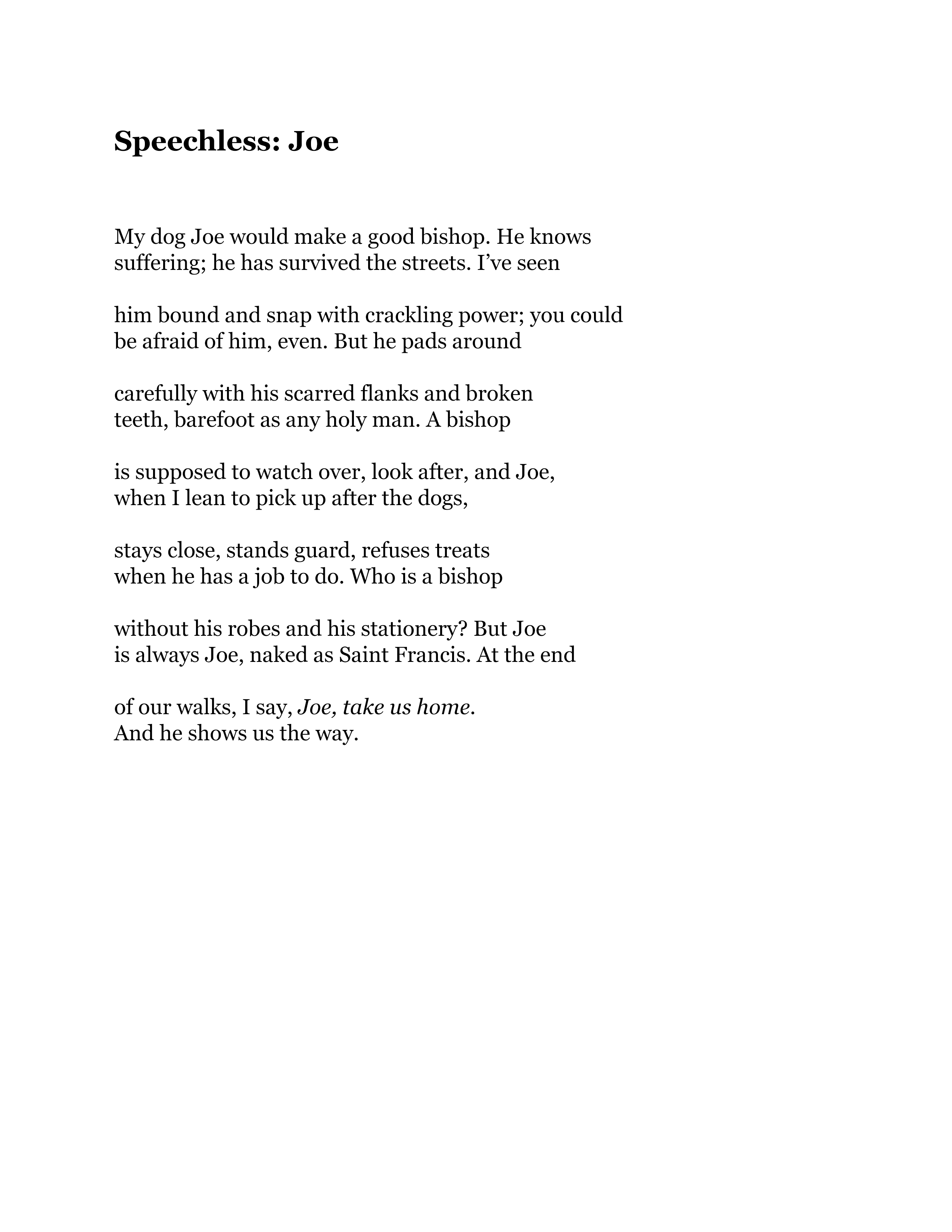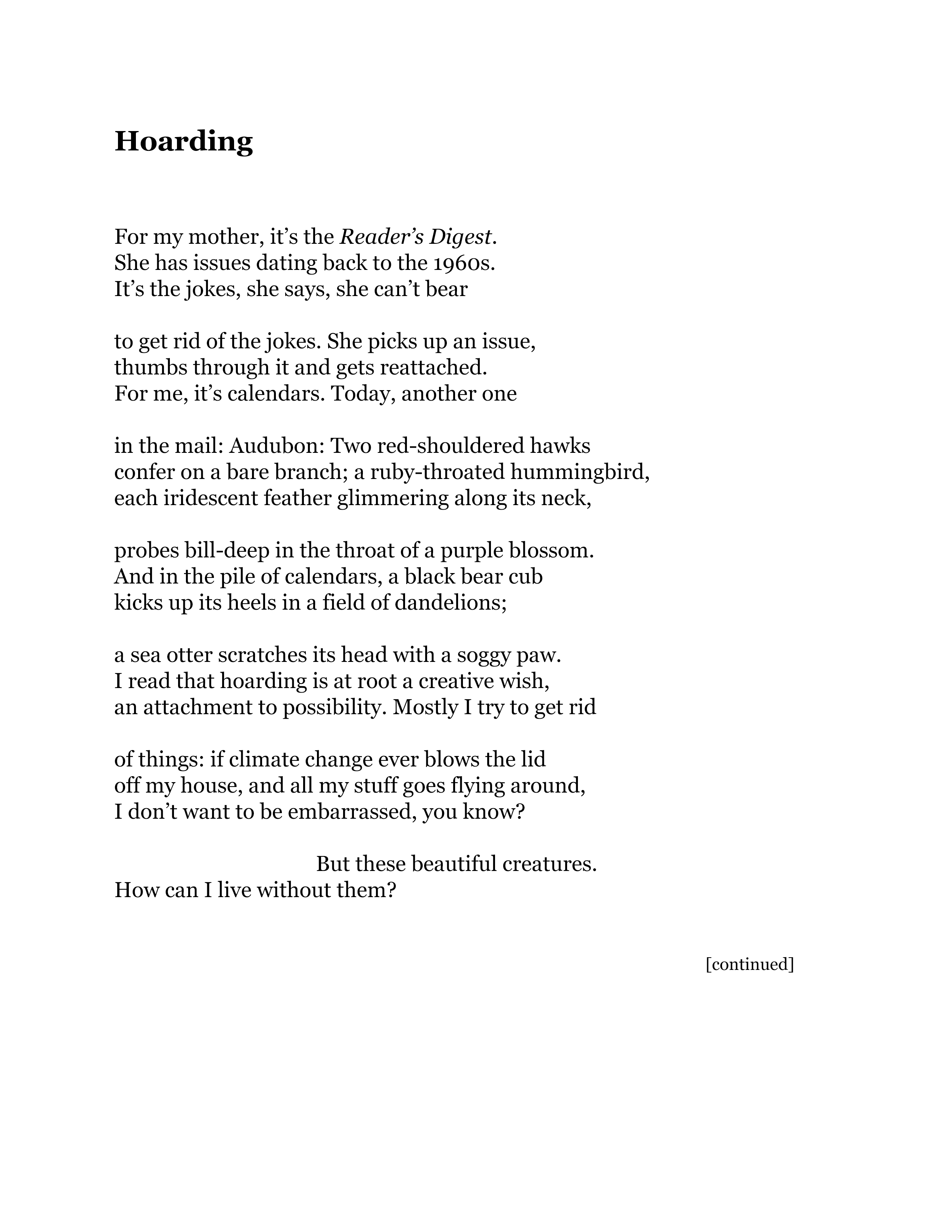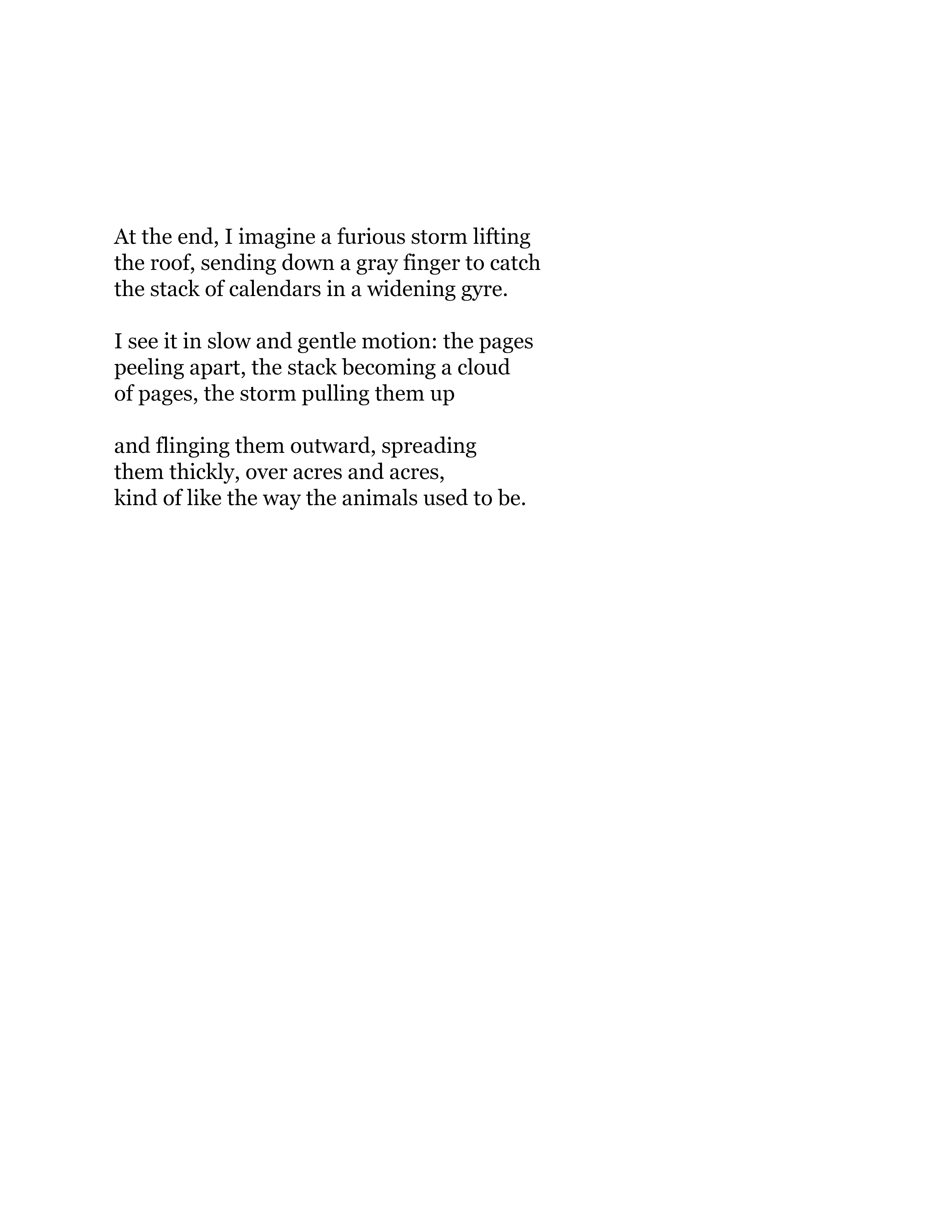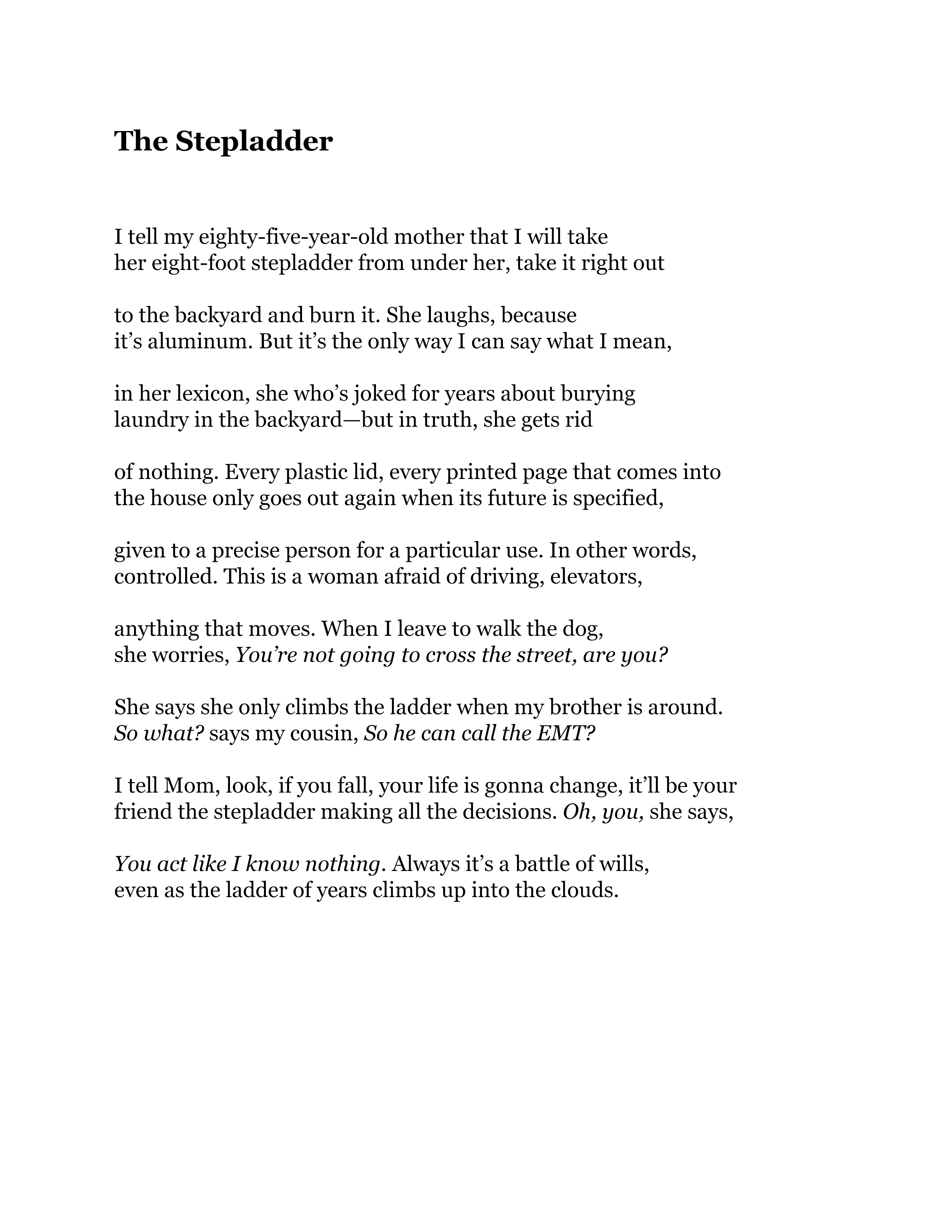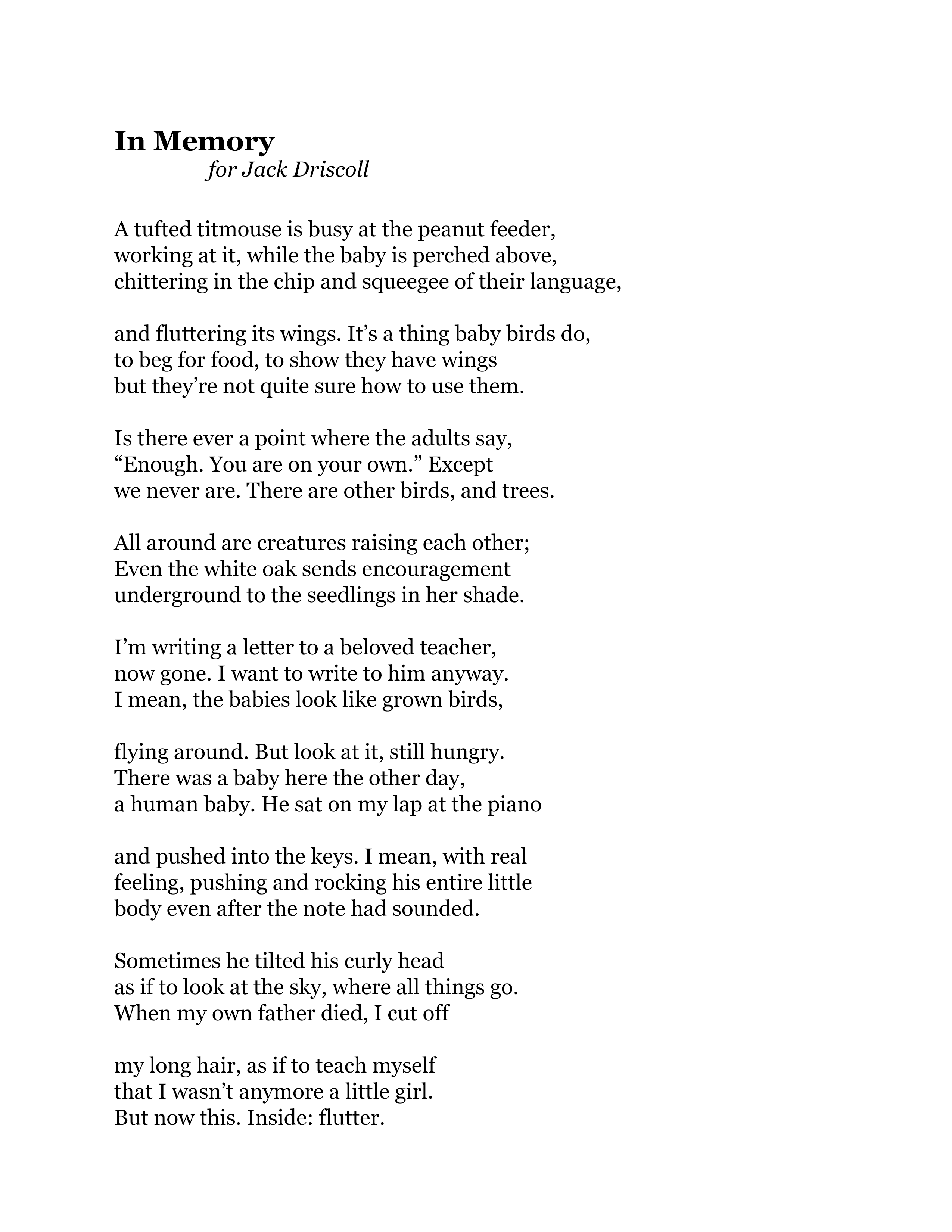4 poems by Teresa Scollon
1 essay by Jen Karetnick, on the poems of Teresa Scollon
Once-Taboo Subjects Overtake the Universal Narrative
Back in the Nineties when I was an up-and-coming poet, writing about domesticity was considered indecorous. Couplets about your mom? Cringe. Lines concerning your kids, or your own life as a kid? Big nope. Dog or cat verse? Definitely uncool. I’m not kidding. I got some editorial handwritten scrawls on form declines—in those days when rejections came by postal mail—that declared, “We don’t publish poems on these subjects.”
As an editor and as a poet, I’m delighted to see that this is no longer the case. After all, our families (including our pets and friends) are such rich source material. A week in hours is 168. Minus the average 40 we’re supposed to work, that leaves about 128 hours of past or present home life to serve as the majority of our inspiration.
At my literary institution, we might even (gently) joke about how many poems we now receive about mothers and fathers, about children, about pets, about friendships. But because of that high amount, we’re also able to identify what makes a good poem on these subjects and themes that are so common to so many of us.
Using a restrained amount of detail, defining character traits (including those all-important flaws) and a perceptive point of view, the poet’s “Hoarding,” “The Stepladder,” and “In Memory” take us away from the universal narrative of the aging and dying into the personal sphere. The poet identifies with their subjects—“But these beautiful creatures. / How can I live without them?”—as they decry them at the same time. In the end, the reader feels compassion because the poet does.
These poems succeed because, along with their display of craft, they tackle familiar stories with empathy but also make them exclusive to the poet’s experience. For example, in “Speechless: Joe,” which is a “dog poem” but not only a dog poem, the reader receives a new interpretation of power structures, of suffering and, throughout, of faith.

